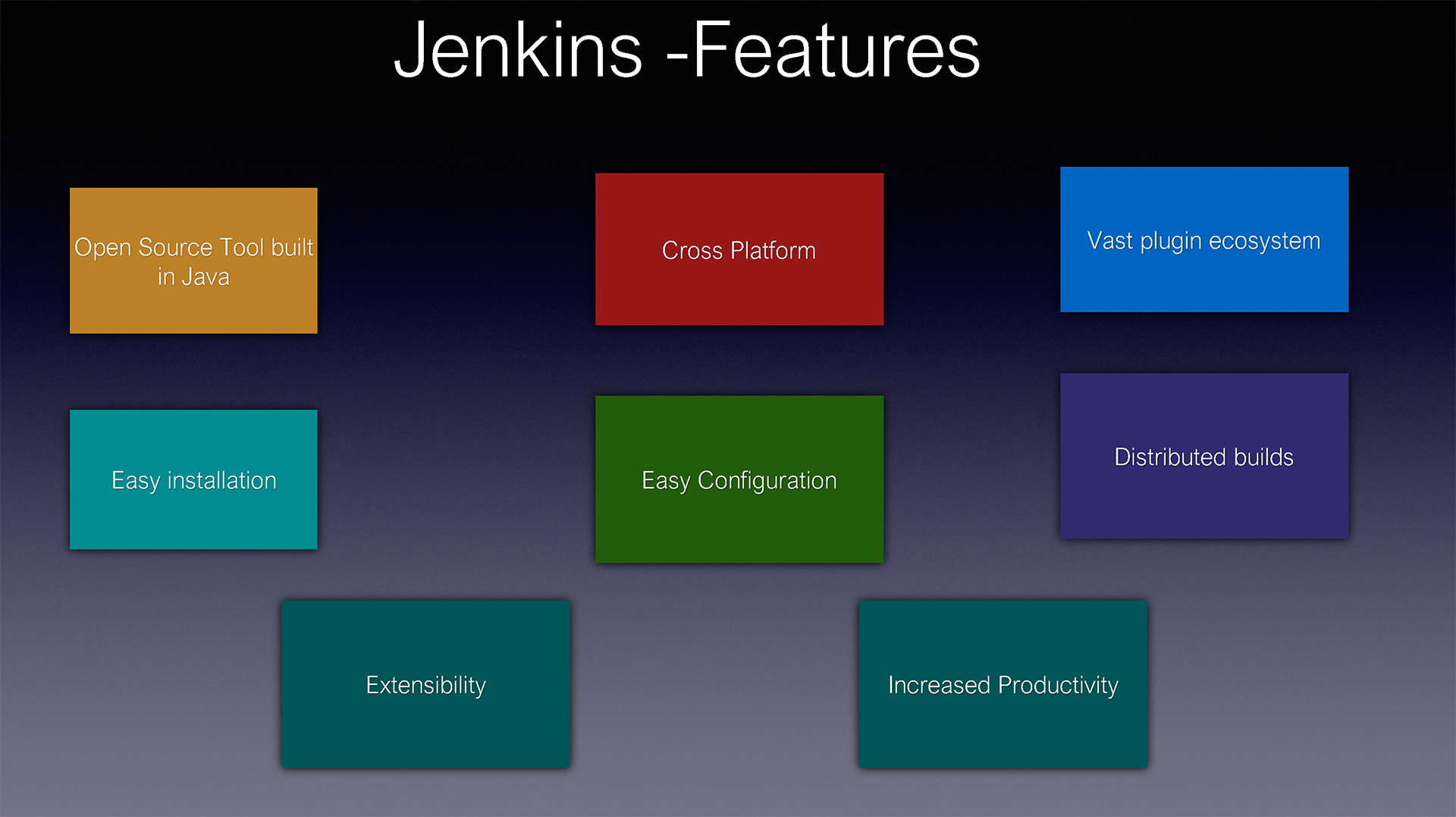
Transcripted Summary
Jenkins is one of the most popular tools for implementing continuous integration for any platform or technology. It is an open-source tool built in Java. It supports multiple plugins for enabling continuous integration and continuous delivery.
Jenkins can trigger a build for any code change in a repository. Once the code is built, Jenkins can submit the code for testing to verify the stability or functionalities of the application. Once everything is verified, it can also deploy the application code on a production server. Jenkins supports thousands of plugins to extend its functionality.

To summarize these features, Jenkins is an open-source tool built in Java that enables teams to perform continuous integration and continuous deployment activities, regardless of the platform used. Jenkins offers a vast plugin ecosystem to extend its functionality and usability. Most plugins are extensible and we can also customize plugins the way we want.
Jenkins is easy to install and we will explore this topic in a subsequent chapter. Jenkins can distribute builds to multiple computers built with different operating systems.The most important feature of Jenkins is that it increases developer productivity tremendously by automating many manual tasks.
Resources
Quiz
The quiz for this chapter can be found in section 2.4
